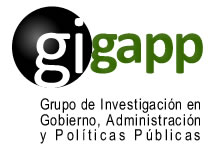Change and discontinuity? The Participatory Budget in the political agenda of Porto Alegre (RS), Brazil
Abstract
This article aims to analyze how the Participatory Budget is positioned in the government plans of the candidates for the municipal executive of Porto Alegre in the election of 2016. For that, we carry out a research of qualitative approach with descriptive purpose. The main strategy for collecting and analyzing information was the documental research. The theoretical basis was based on the constitutive bibliography of the public policy cycle, with special attention to the agenda setting theory, as well as the literature on social participation derived from the theory of democracy. In our categorization the topic was classified as "relevant" in six government plans, "intermediate" in two and "indifferent" in only one of the documents analyzed. These data allow us to infer that, at least in terms of electoral proposals, social participation with OP is still predominantly relevant, although we criticize the form of its expression in the plans.
Downloads
Copyright (c) 2019 Marco Antonio Carvalho Teixeira, Dr., Pedro Henrique Bianchi, Guilherme José Rodrigues Rezende (Autor/a)

This work is licensed under a Creative Commons Attribution-NonCommercial-ShareAlike 4.0 International License.
Those authors who have publications with this journal, accept the following terms:
a. Authors will retain their copyrights and guarantee the journal the right of first publication of their work, which will be simultaneously subject to the Creative Commons Attribution-NonCommercial-ShareAlike 4.0 International (CC BY-NC-SA Recognition License). 4.0) that allows third parties to share the work as long as its author and its first publication are indicated in this journal.
Under this open access license, readers (users) can:
- Share — copy and redistribute the material in any medium or format
- Adapt — remix, transform, and build upon the material
Under the following terms:
-
Attribution — Users must give appropriate credit, provide a link to the license, and indicate if changes were made. You may do so in any reasonable manner, but not in any way that suggests the licensor endorses you or your use.
-
NonCommercial — Users may not use the material for commercial purposes.
-
ShareAlike — If remix, transform, or build upon the material, users must distribute your contributions under the same license as the original.
- No additional restrictions — Users may not apply legal terms or technological measures that legally restrict others from doing anything the license permits.
b. Authors may adopt other non-exclusive license agreements for the distribution of the version of the published work (eg: deposit it in an institutional telematic archive or publish it in a monographic volume) provided that the initial publication in this journal is indicated.
c. Authors are allowed and recommended to disseminate their work through the Internet (e.g. in institutional telematic files or on their website) before and during the submission process, which can lead to interesting exchanges and increase citations of the published work. (See The effects of open access).



